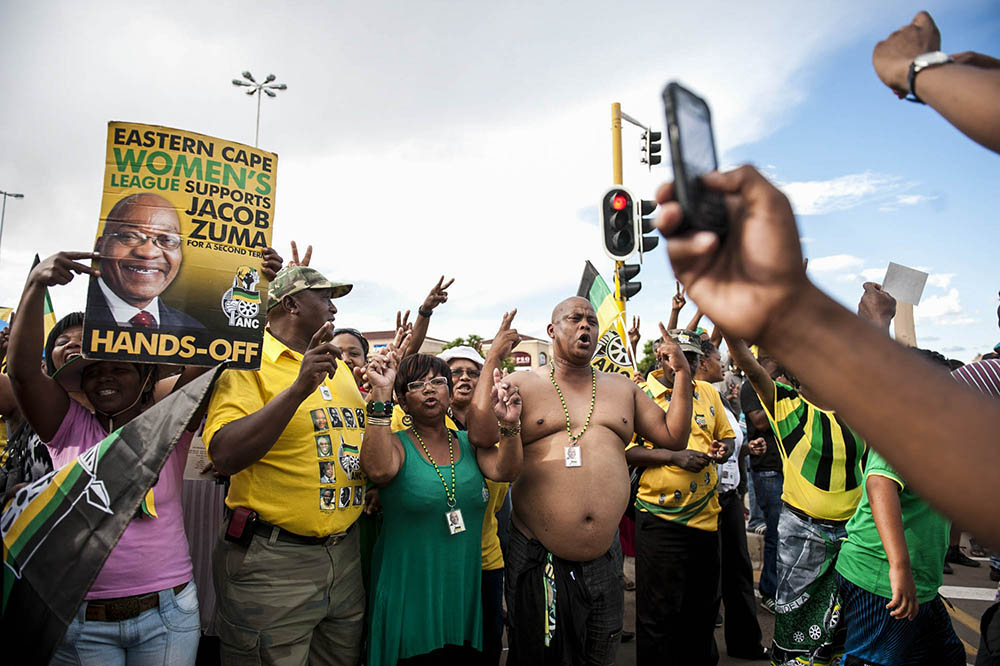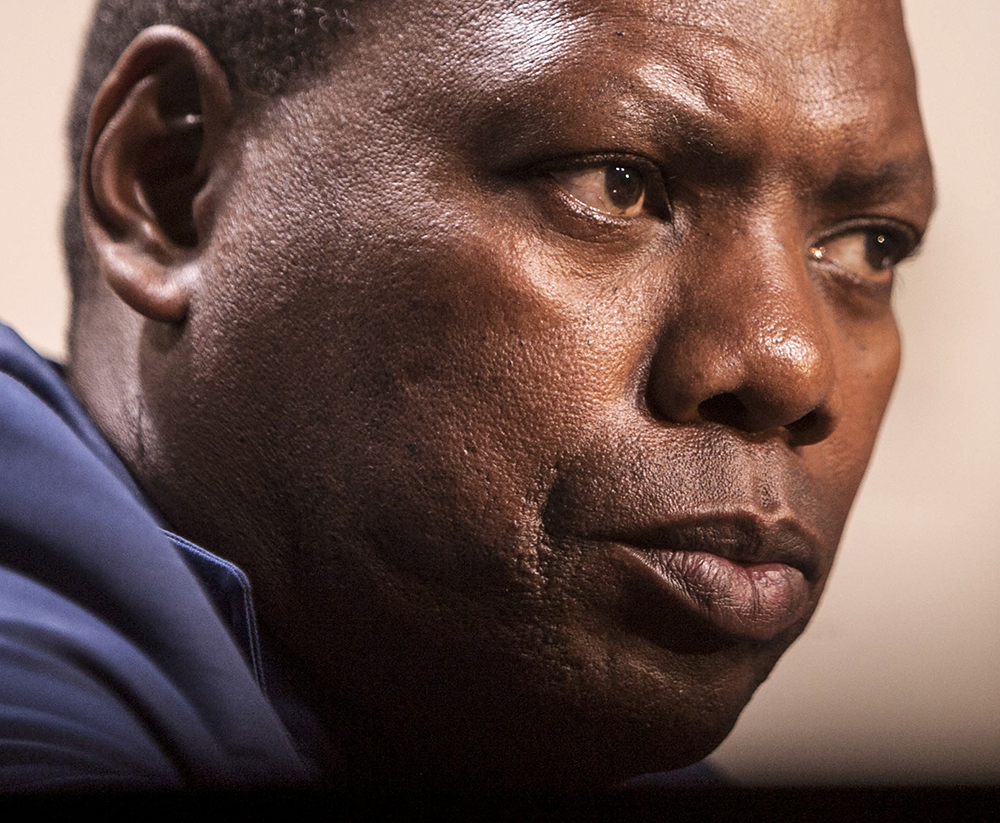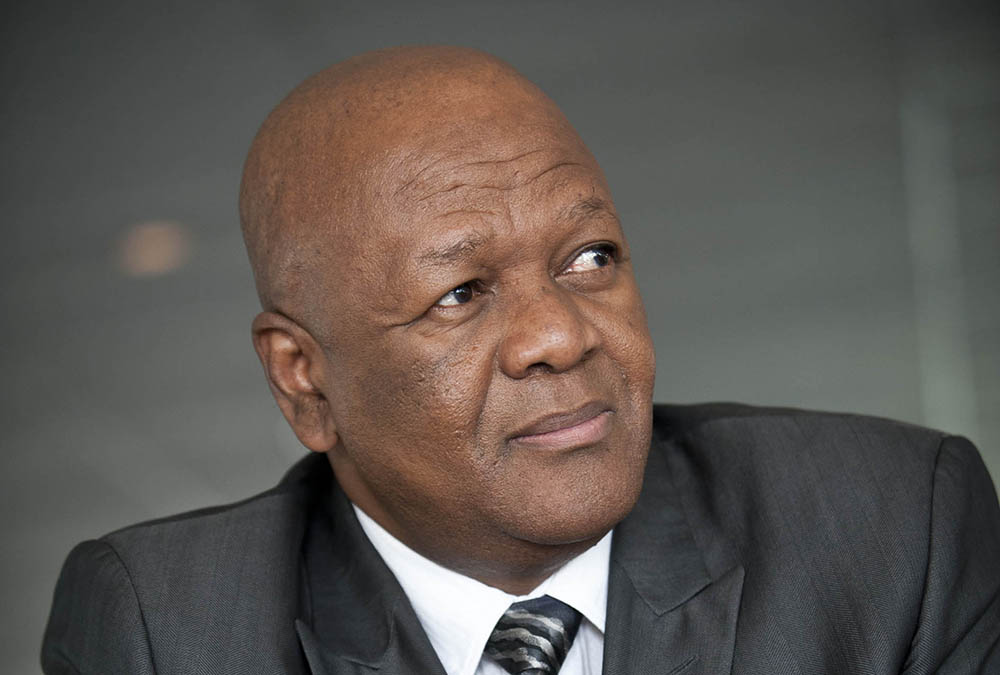The Johannesburg branch of the ANC has put Kgalema Motlanthe's name forward as a candidate for the presidency of the ANC.
In a rerun of Mangaung 2012, Kgalema Motlanthe is being thrust forward as the preferred candidate for the presidency of the ANC.
His name has resurfaced as a potential candidate to succeed President Jacob Zuma as the ANC’s and the country’s president, with the ANC in Johannesburg putting his name forward.
Leaders from Motlanthe’s Joe Nkadimeng branch and the Sefako Makgatho branch have been actively lobbying for the former ANC deputy president to succeed Zuma.
An executive at Motlanthe’s branch said 70% of the 135 branches in Johannesburg supported Motlanthe as a candidate for president: “Kgalema has not taken a break from politics. We are launching his campaign today [Wednesday]. The primary objective of this campaign is to restore the dignity of the ANC. But, beyond that, it is to bring back the hope of citizens because they have lost confidence in the ANC.”
On Wednesday evening, several branches in the city invited Motlanthe to speak at an event on political education.
In his speech, Motlanthe was typically reticent about his ambitions, but accused the current ANC leadership of not leading by example. He said an organisation as prestigious as the ANC could not afford to create credibility gaps in society.
“It [the ANC] must always ensure that what it says is the truth.”
Motlanthe took a swipe at the senior ANC leadership, accusing them of disregarding the ANC constitution and warning against widespread corruption.
“They [ANC leaders] say, ‘Do as I say, not as I do’ – and that is why the ANC will die,” said Motlanthe at the event touted to be the former caretaker president’s “launch party”.
Asked whether he was ready to accept the nomination, Motlanthe said the event was not the right occasion at which to ask questions about succession.
He later encouraged ANC members to consider nominating a younger person to lead the organisation. He said it was not advisable for leaders like him, who had served in leadership positions before, to consider being nominated for key party positions again.

Kgalema Motlanthe’s dithering played into Jacob Zuma’s hands in Mangaung in 2012, where Zuma was re-elected. (Madelene Cronjé)
Motlanthe raised concerns about the disregard shown by some senior leaders for the ANC’s constitution.
“The constitution is the glue that holds the organisation [together]. Once the constitution is superseded [by some individuals], the organisation will fall apart. Otherwise it will be like sharia law, where only leaders decide what is right and wrong.”
He said the ANC could not expect to run a corruption-free government if it did not respect its own internal processes.
“If we corrupt the internal processes of the organisation, we will have corruption across the length and breadth of the country. We can’t fail to practise democracy internally and hope to practise it in terms of the country as a whole,” he said.
Sasabona Manganye, the chairperson of the Sefako Makgatho branch, confirmed in an interview on Wednesday that there were discussions within the party to nominate Motlanthe as the preferred candidate to succeed Zuma.
He said the leaders of several branches had already approached Motlanthe about the matter and he was amenable to the idea.
“We spoke to Kgalema. He is a member and will allow the process to unfold. We don’t have a doubt that he will stand. That is why we invited him as a keynote speaker to our event today,” Manganye said. “The fact that he availed himself for organisational work shows that he is ready to lead the ANC again.”
He said the ANC needed a leader of Motlanthe’s calibre to pull the party out of the credibility crisis it was facing.
“We want to wait for the official process, but I have no doubt in my mind that ANC branches will want to see him [Motlanthe] back. The current status quo [in the party and the country] requires someone like him to restore the credibility of the ANC.
“We [Sefako Makgatho branch] had internal discussions on the kind of a leader the ANC wants. We have a challenge currently – our leaders always have a cloud hanging over their head,” said Manganye.
“Whenever we do campaigns, we are forced to justify why we are having particular individuals as leaders. We are tired. We want leaders who will hold the moral high ground.

Zweli Mkhize.
“We want the kind of leaders who put society first. We don’t want leaders who look at themselves and their families. Leaders should reflect what the ANC is all about when they speak and when they walk.
“Kgalema meets the basic criteria that my branch looked at using through the eye of needle as the organisational and political principle to choose leaders,” Manganye said.
A respected ANC veteran, Motlanthe took a backseat on party matters after he and his supporters were roundly defeated by Zuma in their bid for the presidency of the ANC in Mangaung in 2012 after a bruising internal party battle.
Zuma has made it clear he will not stand for re-election as ANC president in 2017 and his last term as the country’s president expires in 2019.
Until recently, Deputy President Cyril Ramaphosa, African Union Commission chairperson Nkosazana-Dlamini Zuma and National Assembly speaker Baleka Mbete were seen as frontrunners to succeed Zuma. (See “Let the games begin: Dlamini-Zuma, Mbete tipped to square off”)

Jeff Radebe.
ANC treasurer general Zweli Mkhize and Planning Minister Jeff Radebe have also been mentioned as possible candidates for the party’s top position.
Manganye said, although he respected the Farlam commission of inquiry’s report, which cleared Ramaphosa of any wrongdoing, there were still perceptions in some quarters that he should be held criminally liable for his role in the August 2012 Marikana shootings.
“I believe Cyril is not guilty, but the public perception out there is that he is guilty. You don’t want leaders that you will always be forced to defend. We need to get someone who is clean. There are many such leaders in the ANC and Kgalema Motlanthe is one of them,” Manganye said.
His branch would publicly put forward Motlanthe’s name as ANC leader immediately after the local government elections, expected to be held in August this year.
“Our major focus at the moment is the elections. Once we are done with the elections, we will publicly pronounce our preferred candidate to lead the ANC. We will not wait for the formal organisational processes, because, already, people are pronouncing their candidates.”
ANC spokesperson Zizi Kodwa said there was no talk about who would lead the ANC.
“Nothing is happening on succession at the moment. We are busy preparing for the elections,” he said.
Kgalema forever hangs back
It was only on the day of the fateful Mangaung election that Kgalema Motlanthe confirmed that he would accept nomination for the post of ANC president – and he appeared to do even that reluctantly.
It would be three more years after that before he would speak openly about his decisions.
Others, who became known as the “forces of change” faction, did most of the talking for him.
Julius Malema, then still leader of the ANC Youth League, floated the idea of a Motlanthe presidency as early as 2010. By the time of the elective conference at the end of 2012, Malema was out in the cold but the league remained Motlanthe’s most visible supporter.
Jacob Zuma seemed to campaign primarily on the message that a change in leadership should be for good reason. His supporters were, at times, deafening. Cosatu urged Motlanthe not to stand against Zuma, and the Umkhonto weSizwe Military Veterans’ Association issued an ultimatum: it would vote for Motlanthe as deputy president but if he stood for president he would get no support.
Cutting such a deal, Motlanthe said late last year, would make him party to an administration without respect for the Constitution. At the time, he said only that he was respecting the will of ANC branches by resisting slate voting. It was a losing approach. In the final tally, Motlanthe did not quite get 25% of the vote, with 2 986 votes out of a total 3 977 going to Zuma – and whispers of the coming purge of Motlanthe’s few supporters began.